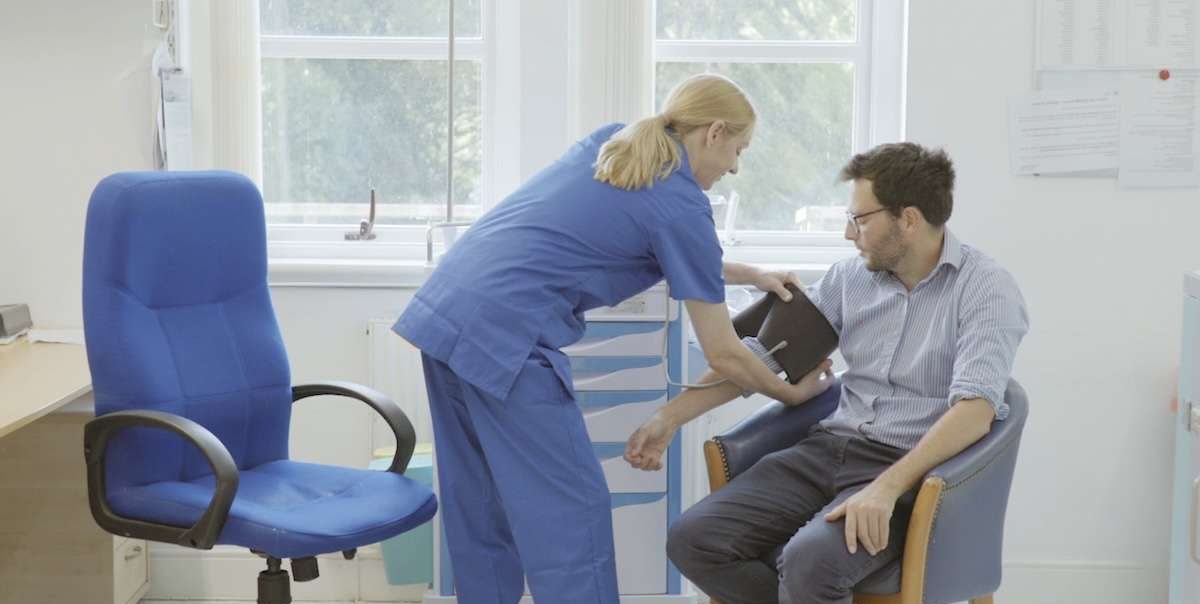
Residential Xanax Detox Treatment
At Castle Craig, we provide medically managed Xanax detox in a safe and supportive residential setting. Our private centre offers evidence-based addiction treatment designed to help you take courageous steps towards long-lasting recovery. With a holistic approach, our therapies focus on your mental, physical and emotional health. The experienced medical team at our detox centre is committed to supporting you throughout your stay, keeping you comfortable and safe. Situated in the beautiful Scottish Borders, the natural surroundings of our grade B listed building provide a serene backdrop for your journey, offering opportunities for reflection and connection with nature.
This article will explore essential topics related to Xanax detox, including how long it takes to detox from Xanax, withdrawal symptoms you may experience and the stages involved in medical detox. You will also find guidance on timelines, managing cravings and medications used as part of the Xanax detox process. If you want to learn more about our addiction treatment and how we can help you or your loved one, get in touch now on 01721 546 263.
What is Xanax Detoxification?
Xanax detoxification is the process of clearing Xanax (alprazolam) from your body under controlled conditions. This often involves gradually lowering the dosage to reduce withdrawal symptoms and create a safer experience. Detoxing from Xanax is often a crucial first step in recovery, helping to move you towards a healthier future.
During alprazolam detox, your body begins to adjust to life without the substance. Withdrawal symptoms like anxiety, restlessness or insomnia may occur as your system adapts, which is why a supported setting can make a big difference. Safe Xanax detoxification provides not just security but reassurance as you take this initial step.

Start Your Recovery at a Residential Rehab Today
What is a Medically Managed Xanax Detox?
A medically managed detox for Xanax is a detoxification process overseen by healthcare professionals. This approach uses personalised plans for tapering off Xanax along with specific medications to ease withdrawal symptoms while reducing risks. The goal is to make the detox process as safe and supportive as possible.
At Castle Craig, our medical detox combines expert care with a compassionate approach to help you feel supported throughout. With close monitoring and the use of evidence-based care, our method not only helps manage withdrawal but also prepares you to continue with your substance addiction treatment confidently.
Difference Between Medically Managed Xanax Detox and Medically Supervised Xanax Detox
Medically managed Xanax detox focuses on expert care and comprehensive treatment throughout the detoxification process. It emphasises safety while addressing Xanax withdrawal symptoms and offering tailored support at every stage. Medically supervised detox, on the other hand, may involve less rigorous monitoring and fewer therapeutic interventions.
Medical Xanax detox includes professional observation at all times and therapies grounded in practices that are proven to promote stability and recovery. The thorough and attentive approach addresses the physical effects of Xanax withdrawal while supporting mental and emotional wellness, laying a strong foundation for long-term recovery from drug dependency.
Free Xanax Addiction Assessment
Castle Craig provides free and confidential drug addiction assessments as an initial step in beginning treatment. Our experienced team conducts these evaluations in a compassionate and understanding environment, giving you the opportunity to share your experiences and challenges with professionals dedicated to supporting your recovery.
After completing your Xanax addiction assessment, we create a personalised residential treatment plan designed to suit your individual needs. Our bespoke plans provide the therapies and resources necessary for recovery and addresses physical symptoms, emotional concerns and mental health factors related to Xanax dependency. Call us today on 01721 546 263 so we can guide you confidently towards a healthier future.


Benefits of Inpatient Residential Xanax Detox and Withdrawal Treatment
Choosing inpatient residential rehab treatment for Xanax withdrawal offers a wide range of benefits for those looking to reclaim control over their lives. The structured approach of residential care not only addresses the physical symptoms of withdrawal but also provides emotional and psychological support to encourage long-term abstinence.
This section will explore the specific advantages of inpatient programmes for Xanax in the UK, demonstrating how comprehensive care can make the stages of alprazolam withdrawal and detoxification safer, more manageable and more effective for lasting health.
-
24/7 Medical Management During Xanax Withdrawal
One of the key benefits of inpatient residential detox is round-the-clock medical care. Having access to trained professionals at all times means that withdrawal symptoms and any complications are addressed immediately. Constant monitoring reduces anxiety, providing patients with a sense of safety and support.
Medical management offers not just physical care but emotional reassurance. Nursing staff and therapists are available to offer guidance, adjust treatments as required and provide encouragement, helping people feel supported every step of the way during their Xanax addiction treatment.
-
Reduced Risk of Seizures and Dangerous Reactions
Xanax withdrawal can sometimes cause serious health risks, including seizures, especially in cases of long-term or heavy use. In a residential setting, medical teams are trained to handle emergencies effectively, minimising potential harm. Evidence-based methods are used to manage these risks and reactions.
Professional care allows for tailored methods for tapering off Xanax, which gradually decrease dosage under expert supervision. This approach lowers the physical strain of withdrawal, reducing the likelihood of life-threatening complications such as seizures.
-
Immediate Access to Xanax Addiction Treatment Services
Another benefit of inpatient detox is access to a comprehensive range of treatment options on-site. Patients can benefit from therapies such as counselling, psychotherapy or group support to address the underlying causes of Xanax dependence.
Immediate support helps patients start their recovery with the tools they need to cope with cravings and emotional triggers. Having these resources available promotes a smooth beginning to the critical steps toward sobriety.
-
Breaking the Cycle in a Controlled Environment
An inpatient setting creates a secure space, free of external influences or triggers often associated with substance use. This allows people to focus entirely on their recovery without distractions or temptations.
Being in a controlled environment removes access to Xanax, which is essential for breaking cycles of dependence. A secure space also supports mental clarity as patients begin to build a life without relying on substances.
-
Tailored Treatment Plans for Long-Term Sobriety
Individualised care is a hallmark of inpatient detox programmes. Xanax addiction treatments are designed specifically for each person, taking into account medical history, addiction patterns and personal goals.
A personalised approach makes Xanax detox and recovery plans effectively address unique challenges. It lays a foundation for long-term sobriety by preparing people for life beyond treatment with strategies suited to their specific needs.
-
Secure, Relapse-Free Environment
The structured and supervised nature of inpatient treatment makes it less likely for patients to relapse during detox. The lack of access to the drug, combined with professional care, creates a safer recovery.
A secure, private rehab setting builds confidence and reduces early setbacks during withdrawal. Patients gradually gain the skills to handle cravings in a supportive, drug-free environment.
-
Smoother Transition from Detox to Ongoing Xanax Rehab
Xanax detox is just the first step in recovery. Inpatient programmes provide a seamless transition to long-term rehab services, such as therapy and support groups. Being able to move straight into your next phase of treatment helps maintain the momentum built during detox.
Having the same care team oversee both detox and rehab keeps treatment consistent and cohesive, addressing every aspect of your recovery. A smooth transition encourages greater success in achieving sobriety that can last.
-
Holistic Care to Support Mind and Body
Residential detox programmes often include holistic therapies to help heal both the mind and the body. These might involve yoga, mindfulness, animal-assisted therapies or acupuncture, all aimed at reducing stress and improving overall well-being.
Holistic addiction care complements medical treatments, offering patients new tools to manage anxiety and restore physical balance. Castle Craig believes that this all-encompassing approach should cater to the whole person, promoting health and deep-rooted resilience throughout rehab recovery.
Private Medically Managed Xanax Detox Centre Near Me
Choosing private medically managed detox at a Xanax rehab centre can be a life-changing decision. At Castle Craig, we combine expert medical care and a compassionate approach to help you during the detoxification process. Our tailored drug addiction treatment addresses both the physical symptoms of Xanax withdrawal and the personal, emotional challenges associated with addiction, creating a safe path forward.

Contact Castle Craig Residential Detox Centre
Castle Craig is located in the serene countryside of West Linton, near Edinburgh, United Kingdom, EH46 7DH. The tranquil setting provides the privacy and peace essential for focusing fully on long-term recovery from Xanax. Surrounded by natural beauty, our rehabilitation hospital offers a calming environment to support your healing process.
Find Us
01721 546 263
info@castlecraig.co.uk
Castle Craig,
West Linton, Edinburgh, United Kingdom, EH46 7DH
If you’d like to learn more about our residential detox treatment for Xanax addiction, call us today on 01721 546 263. Our friendly and experienced team is available to answer your questions and guide you towards a customised plan for recovery, offering the compassionate support you deserve every step of the way.
-
How to Find Private Inpatient Xanax Detoxification Centres Near You
Finding the right private inpatient rehab treatment with Xanax detoxification is an important step towards sobriety. Knowing what to look for can help you make an informed decision and feel confident in your choice. Here are some key factors to consider when searching for a Xanax detox centres near you that meet your specific needs:
- Search Online Using Targeted Terms: Begin your search with specific keywords like “Private inpatient Xanax detox centre near me,” “Residential Xanax detox in the UK,” or “Private rehab for Xanax addiction.” Adding your location can help you find options that are both accessible and suitable for your requirements.
- Look for Medical Supervision and 24/7 Support: Effective Xanax withdrawal treatment requires expert medical supervision to manage symptoms safely and make the experience as comfortable as possible. Centres offering 24/7 care provide round-the-clock support, enhancing your sense of safety as you progress through alprazolam detox and recovery.
- Read Reviews and Testimonials: Reviews and testimonials from past patients provide valuable insights into the care provided at a Xanax detox facility. Positive feedback on aspects like medical staff, facilities and overall success rates of their programme can give you a better picture of what to expect from the centre you choose.
- Consider What’s Included in the Treatment: A comprehensive treatment plan goes beyond detox and focuses on addressing the root causes of addiction. Ask about services such as therapy, addiction counselling and aftercare support. Residential detox programmes for Xanax often include these elements to strengthen long-term recovery outcomes.
- Enquire About Costs and Payment Options: The cost of private drug rehab for Xanax addiction can vary, so it’s important to ask about pricing upfront. Enquire about available payment options, such as instalment plans or financial assistance, to find drug treatment options within your financial capacity.
- Check if Health Insurance Is Accepted: If you have private health insurance, such as Bupa or Vitality, ask whether the centre accepts it and what treatment expenses may be covered. This can help significantly reduce out-of-pocket costs, making Xanax withdrawal treatment more accessible.
Carefully evaluating these factors will help you find a Xanax detox centre in the UK that fits your needs and provides specialised, compassionate care to guide you along your recovery journey.
Find Out About Our Residential Xanax Detox Treatment
At Castle Craig, we provide free drug addiction assessments for Xanax as part of our admissions process. This allows us to understand your unique situation and offer compassionate guidance tailored to your needs, so you feel supported from the very beginning.
Our expert team can design a customised, medically managed detox and recovery plan for Xanax addiction. We combine evidence-based treatments with holistic therapies to address both the physical and emotional aspects of recovery, giving you the best chance at lasting sobriety. Reach out today on 01721 546 263 to start your path to healing with a trusted team by your side.
Free Xanax Addiction Assessment
Taking the first step and asking for help can feel daunting, but our team is here to assist you.
Signs, Symptoms and Effects of Xanax Withdrawal & Detoxification
Xanax withdrawal and detoxification can manifest in a variety of ways, both physically and psychologically. Below are some common signs, symptoms and effects that people may experience. This is not a complete list but highlights key aspects of alprazolam withdrawal to provide a clearer understanding of what to expect during this challenging time.
-
Early Signs of Xanax Withdrawal
Early Xanax withdrawal signs typically appear within hours to a couple of days after the last dose. These symptoms may vary depending on the individual’s usage and dosage history.
- Restlessness or irritability: Feelings of unease, fidgeting and heightened irritability may arise as your body begins adjusting to the lack of Xanax.
- Anxiety or nervous tension: A noticeable increase in anxious feelings, uneasiness or a sense of impending danger can occur in the initial stages of alprazolam withdrawal.
- Insomnia or disrupted sleep: Difficulty falling asleep or staying asleep is common and can contribute to exhaustion during the early stages.
- Headaches: Intense or frequent headaches might develop as your body starts to regulate itself without Xanax present.
- Difficulty concentrating: Staying focused may become a challenge due to heightened anxiety and other physical or emotional discomforts.
-
Moderate to Severe Symptoms of Xanax Withdrawal Syndrome
Moderate to severe Xanax detox symptoms often emerge within two to five days after stopping consumption and can be more intense physically and mentally.
- Panic attacks: Sudden bouts of paranoia or overwhelming fear may occur, making the withdrawal process more emotionally taxing.
- Severe insomnia: Prolonged inability to sleep can exacerbate other Xanax withdrawal symptoms and impact the body’s recovery process.
- Muscle stiffness or pain: Physical discomfort such as muscle tension or spasms often accompanies moderate to severe detox stages.
- Heart palpitations: Fast or irregular heartbeats can be distressing and are typically connected to heightened anxiety.
- Nausea and vomiting: Digestive upset, including persistent nausea or vomiting, is a common physical symptom of Xanax withdrawal.
-
Psychological Effects of Xanax Withdrawal
Psychological symptoms can last for days, weeks or longer, making it essential to have mental health support as you work on managing Xanax cravings during withdrawal.
- Depression: A deep sense of sadness or hopelessness may develop as your emotional state adjusts post-Xanax.
- Suicidal thoughts: Stopping or reducing Xanax can intensify feelings of despair, potentially leading to thoughts of self-harm in severe cases.
- Paranoia or excessive fear: Intense and irrational fears may arise, creating additional mental strain during recovery.
- Hallucinations (in severe cases): Some people may experience sensory disturbances, such as seeing or hearing things that aren’t real.
- Intense mood swings: Drastic emotional shifts, ranging from irritability to sadness, are a natural part of early psychological Xanax withdrawal.
-
Physical Signs and Symptoms During Xanax Detoxification
Physical symptoms of Xanax withdrawal or detoxification can persist for several days or longer, depending on the individual and detox process.
- Tremors or shaking: Uncontrollable shaking of the hands or body can occur as the central nervous system readjusts.
- Sweating or chills: Excessive perspiration or sudden bouts of chills are signs of physical stress during the Xanax detox process.
- Blurred vision: Temporary disruptions in vision may occur as your body flushes out Xanax.
- Stomach cramps: Abdominal discomfort and cramping are common as the digestive system reacts to chemical changes.
- Sensitivity to light or sound: Increased reactivity to sensory inputs often accompanies the physical and mental turbulence of withdrawal.
-
Long-Term Effects Without Proper Xanax Detox Support
Without adequate support, Xanax withdrawal symptoms can linger, impacting long-term recovery and increasing the risk of relapse.
- Prolonged anxiety and depression: Unaddressed withdrawal problems can lead to enduring mental health challenges, making recovery more difficult to sustain in the long run.
- Rebound insomnia: Sleep disturbances may persist for weeks or months, further affecting energy levels and emotional well-being.
- Cognitive issues (e.g. memory or focus problems): Concentration, memory retention and overall cognitive function may be impaired without structured detox care.
- Protracted withdrawal symptoms (PAWS): Some people experience long-term symptoms like mood swings and cravings, extending the withdrawal period.
- High risk of relapse or overdose: Without proper detox and support, there’s an increased risk of returning to Xanax or experiencing an overdose from lowered tolerance.
If you’re considering detoxing from Xanax, compassionate, professional support can make a significant difference in navigating these symptoms and supporting a safer recovery for you or your loved one.

Medications Used for Xanax Detoxification
Medication may or may not be part of the Xanax detox process, as treatments are tailored based on personal needs and the severity of addiction. Some clinicians may incorporate certain medications as part of a medical Xanax detox plan. Below are medications that may be considered.
- Diazepam: Diazepam may be utilised to replace Xanax in smaller, controlled doses. This gradual tapering approach helps reduce withdrawal severity and minimises the risk of dangerous complications. Diazepam (Valium) can be effective when managed carefully in a controlled detox setting, however it carries a high potential for dependence and misuse.
- Clonazepam: Clonazepam, a longer-acting benzodiazepine, is sometimes used during tapering to stabilise withdrawal symptoms and promote smoother transitions away from Xanax dependence.
- Chlordiazepoxide: Chlordiazepoxide may be prescribed for its calming properties and to prevent serious withdrawal effects. Its long-lasting action helps manage Xanax detox symptoms effectively over an extended period.
- Gabapentin: Gabapentin supports medical Xanax detox by reducing nerve-related discomfort, anxiety and insomnia. Its calming effects can make withdrawal more manageable for those experiencing heightened symptoms.
- Carbamazepine: Carbamazepine is used to prevent seizures and stabilise mood during detox. It is particularly helpful for cases with a high risk of complications.
- Lofexidine: Lofexidine, a non-opioid, targets withdrawal-related symptoms such as chills, agitation and restlessness. It helps patients feel more comfortable during the Xanax detox phase.
- Propranolol: Propranolol manages physical symptoms such as rapid heart rate and sweating, often experienced during anxiety-driven withdrawal episodes. It promotes a sense of calm by regulating bodily responses.
- Hydroxyzine: Hydroxyzine, an antihistamine, is given to ease anxiety and support relaxation. It is also beneficial in addressing nausea or sleep disturbances during Xanax detox.
- Melatonin: Melatonin is a natural supplement used to regulate sleep cycles interrupted by Xanax withdrawal. It supports restful sleep without introducing additional sedative medications.
At Castle Craig, we approach the use of detox medications with the utmost responsibility to ensure they do not result in a new dependency. We understand that this may be a concern for some patients, and we are here to reassure you that medications are prescribed only when clinically necessary and are closely managed under the care of our Consultant Psychiatrist and trained medical staff.
Our goal is to alleviate withdrawal symptoms safely while focusing on your overall recovery and the goal of abstinence. By using evidence-based protocols and regularly assessing your progress, we only use detox medications as a short-term tool to support your transition into sobriety, always prioritising your long-term health, well-being and abstinence.

Contact Castle Craig Today
Take the first step towards recovery by reaching out to Castle Craig. Our team is ready to provide all the information you need about our residential treatment and admissions process. Call us now on 01721 546 263 to speak with a member of our compassionate team. If you prefer, you can also fill out our online contact form, and we will get in touch with you. We’re here to support you, every step of the way.
Does Health and Medical Insurance Cover Xanax Detoxification Treatment?
Yes, health and medical insurance typically cover Xanax detoxification treatment in the UK, but coverage depends on the specifics of your insurance policy and provider. Levels of support can vary, so it is important to review your plan and speak directly with your insurer to clarify what they will fund.
If you are covered and approved for treatment at Castle Craig, we accept private health insurance from many major providers. Our team can assist you in understanding our detox treatments, approaching your provider and guiding you through our insurance admissions process. Fill out our confidential online form today and request a call back from one of our team members.
How Much Does Residential Xanax Detox Cost?
The cost of a standalone Xanax detox in the UK typically ranges from £1,000 to £6,000 for a 7-10 day programme. However, detox is most effective when included as part of a comprehensive treatment plan, which this cost does not cover. For private residential programmes, drug rehab costs range from £650 to £1,500 per day, and £4,500 to £10,000 per week.
Costs can vary depending on specific personal needs and the duration of the treatment programme. Factors such as medical support, therapies and additional care all contribute to the overall expense, highlighting the importance of an individualised approach to recovery. All addiction treatments are included in Castle Craig’s rehab pricing, so you don’t have to worry about additional costs unless you extend your stay with us. Call us on 01721 546 263 to talk to our friendly staff about the price of the accommodation types and programme lengths that we offer.
Xanax Detox Timeline and How Long It Takes
Xanax detox, where needed, is an important first step in the process of overcoming dependency. While this section outlines the Xanax detox timeline and what to expect at each stage, it’s essential to remember that completing a full rehab programme, as recommended by healthcare experts after your initial assessment, is critical for long-term and sustainable recovery.
-
Stage 1: Early Withdrawal Symptoms (6–12 Hours After Last Dose)
The first stage of detoxing from Xanax begins within 6 to 12 hours after your last dose. This period, referred to as early withdrawal, often includes symptoms like restlessness, anxiety and a re-emergence of conditions that Xanax was originally prescribed for, such as increased nervousness. These are the initial signs of your body adjusting to the absence of the medication.
Physical Xanax withdrawal symptoms during this phase can include headaches, muscle tension and difficulties sleeping. Under a medically managed alprazolam detox, healthcare professionals monitor your progress and provide compassionate care, offering reassurance and comfort as you begin the early stages of detox from Xanax.
-
Stage 2: Peak Xanax Withdrawal Symptoms (24–72 Hours)
Xanax withdrawal symptoms often reach their peak 24 to 72 hours after your last dose. During this critical stage, you may experience increased anxiety, mood swings and physical discomfort like nausea, sweating or heart palpitations. This period can feel intense, both physically and emotionally, as your body continues to adapt.
A medical Xanax detox support is essential during the second phase to minimise risks, including the potential for serious complications such as seizures. Medical teams closely support you with appropriate medications and care, helping you stabilise while reducing the intensity of severe symptoms. This allows the process to stay as safe and effective as possible during one of the most difficult stages of your Xanax detox timeline.
-
Stage 3: Subsiding Symptoms and Stabilisation (3–7 Days)
By days three to seven, Xanax withdrawal symptoms generally start to ease, bringing a sense of relief as your body reaches a more stable state. Anxiety often reduces, physical discomfort fades and you begin to feel more balanced. This stage is when many people experience a turning point in their recovery process.
Medical teams use this time to help you transition beyond the detox phase, preparing for longer-term addiction treatment, if required. Completing a comprehensive programme is highly recommended to address the root causes of Xanax dependency and build lasting recovery skills. Understanding the stages of detox from Xanax and receiving professional support can make a significant difference in achieving sustainable, long-term recovery.

Related Guides on Medically Managed Residential Detox
Detox Centre | Inpatient Detox | Alcohol | Drugs | Cocaine | Heroin | Crystal Meth | Valium | Tramadol | Benzodiazepines | Xanax | Codeine | Opioid | Ecstasy | Morphine |
Inpatient Medically Managed Xanax Detox Treatment Admissions Process
Our inpatient medically managed Xanax detox is designed with your unique needs in mind. Each step of the admissions process is carefully tailored so you feel supported, informed, and prepared as you take this important step towards recovery.
- Initial Enquiry and Confidential Consultation: Your recovery journey begins with an initial enquiry. During this confidential consultation, our skilled admissions team will listen to your concerns, answer your questions and provide guidance on how our care can meet your needs. This is your opportunity to share your story in a safe, understanding environment.
- Pre-Admission Xanax Addiction Assessment: Following the initial consultation, we will carry out a thorough pre-admission assessment. This assessment allows our experienced medical and therapeutic staff to understand your history with Xanax and any co-existing health issues. With this information, we can start planning the best approach for your detox and care.
- Confirm Insurance or Private Pay Options: Financial clarity is important. At this stage, our team will help you explore your options, including arranging a private payment plan or liaising with your provider if you are using approved insurance. We aim to make this step as straightforward and stress-free as possible, offering full transparency.
- Confirmation of Admission and Booking: Once your admission details are confirmed, we will arrange your booking and provide all the necessary information for your upcoming stay. Our team is on hand to answer any practical questions you may have about preparing for your rehabilitation journey.
- Arrival for and Start Medically Managed Xanax Detox: On your arrival day, you will be warmly welcomed by our compassionate staff. Your medically managed Xanax detox will start under the careful supervision of our health professionals. Our goal is for you to feel safe and comfortable throughout, with 24/7 support available at every stage.
Your well-being is at the heart of everything we do at Castle Craig. If you have any questions or would like support with starting this process, please don’t hesitate to reach out to us.
Questions About Xanax Detox?
Contact us to discuss your treatment needs with a licensed clinician.
Find Out About Our Residential Detox Treatment
At Castle Craig, we start our admissions process with a free residential addiction assessment. During the assessment, our experienced team will review your needs and help you understand the options available, all within a supportive and confidential environment. This initial step is designed to guide you towards a safe and effective path to recovery.
We also provide a tailored treatment plan based on your specific circumstances, helping you receive the care that’s right for you. Get in touch, and we can offer more accurate pricing details for residential rehab costs, giving you clarity and helping you plan with confidence. Call us today on 01721 546 263 to take the first step toward a healthier future.
Free & Confidential Assessment
Compassionate, expertly delivered evidence-based practices and a patient-centred approach are at the heart of our treatment model. Request a call-back from one of our professionals on any day of the week.
-
Statistics on Xanax in the UK
- In 2023-2024, 3,872 individuals entered treatment for benzodiazepine misuse, reflecting a slight increase from the previous year.
- The North East of England had the highest rate of drug poisoning deaths in 2023, at 174.3 deaths per million people.
- Benzodiazepine misuse accounted for 2.4% of all new entrants to substance misuse treatment in 2023-2024.
- Counterfeit Xanax tablets often contain variable amounts of alprazolam or other substances, posing significant risks to users.
- Private residential rehab centres offer tailored treatment plans that combine evidence-based therapies and holistic approaches, providing a structured environment for Xanax recovery.
- 46.8% of drug poisoning deaths in 2023 involved opiates, highlighting the prevalence of prescription drug misuse.